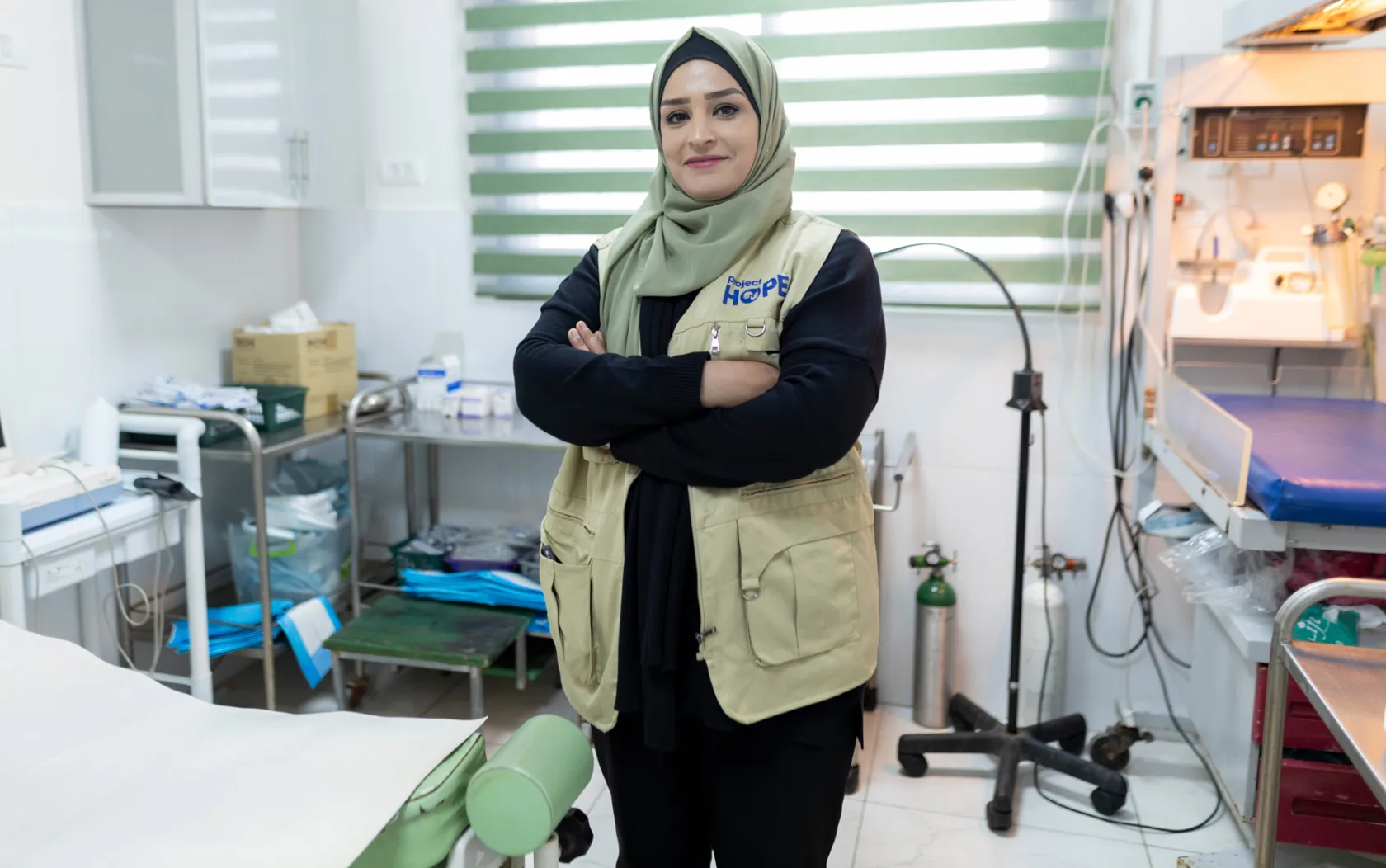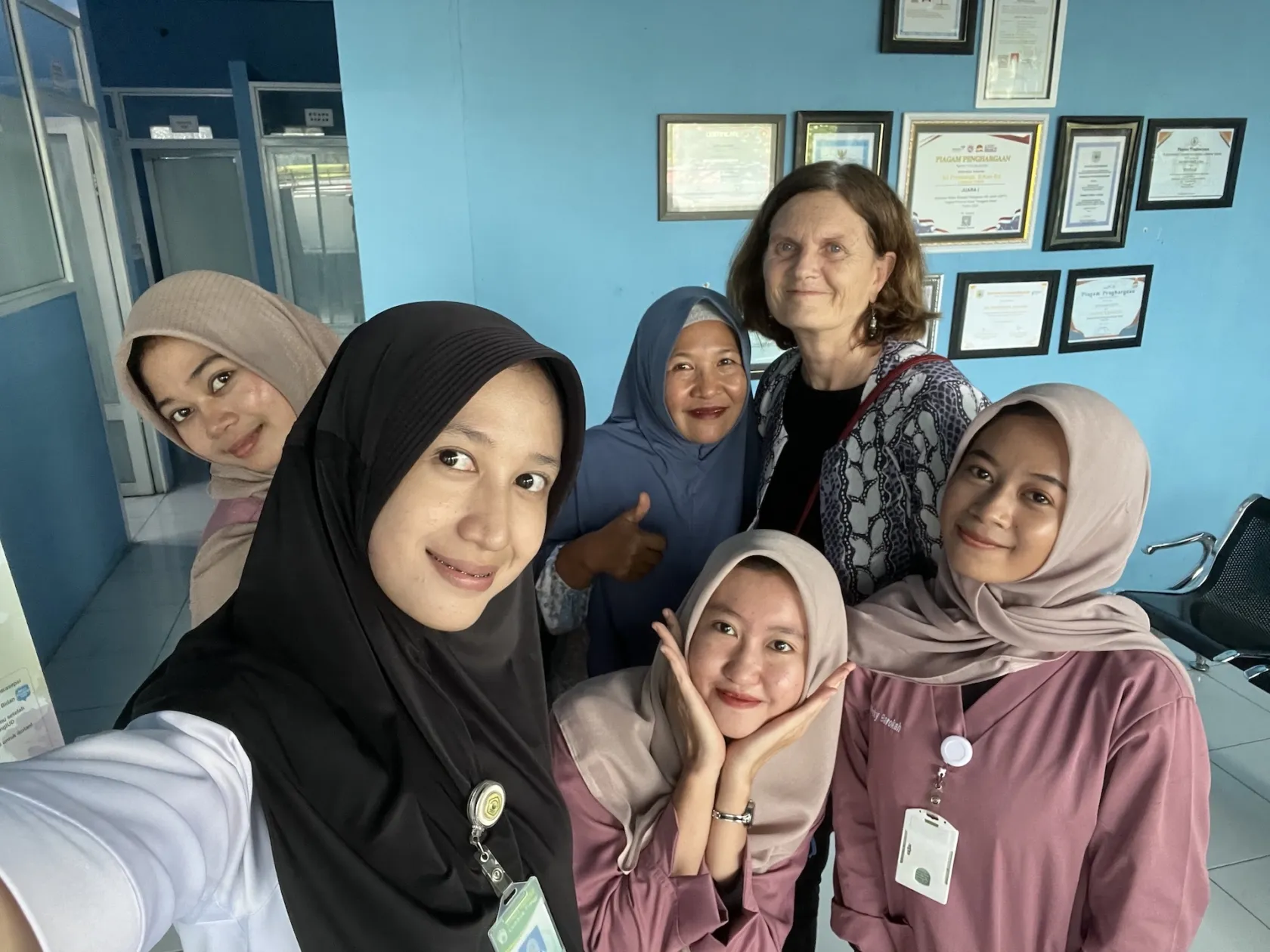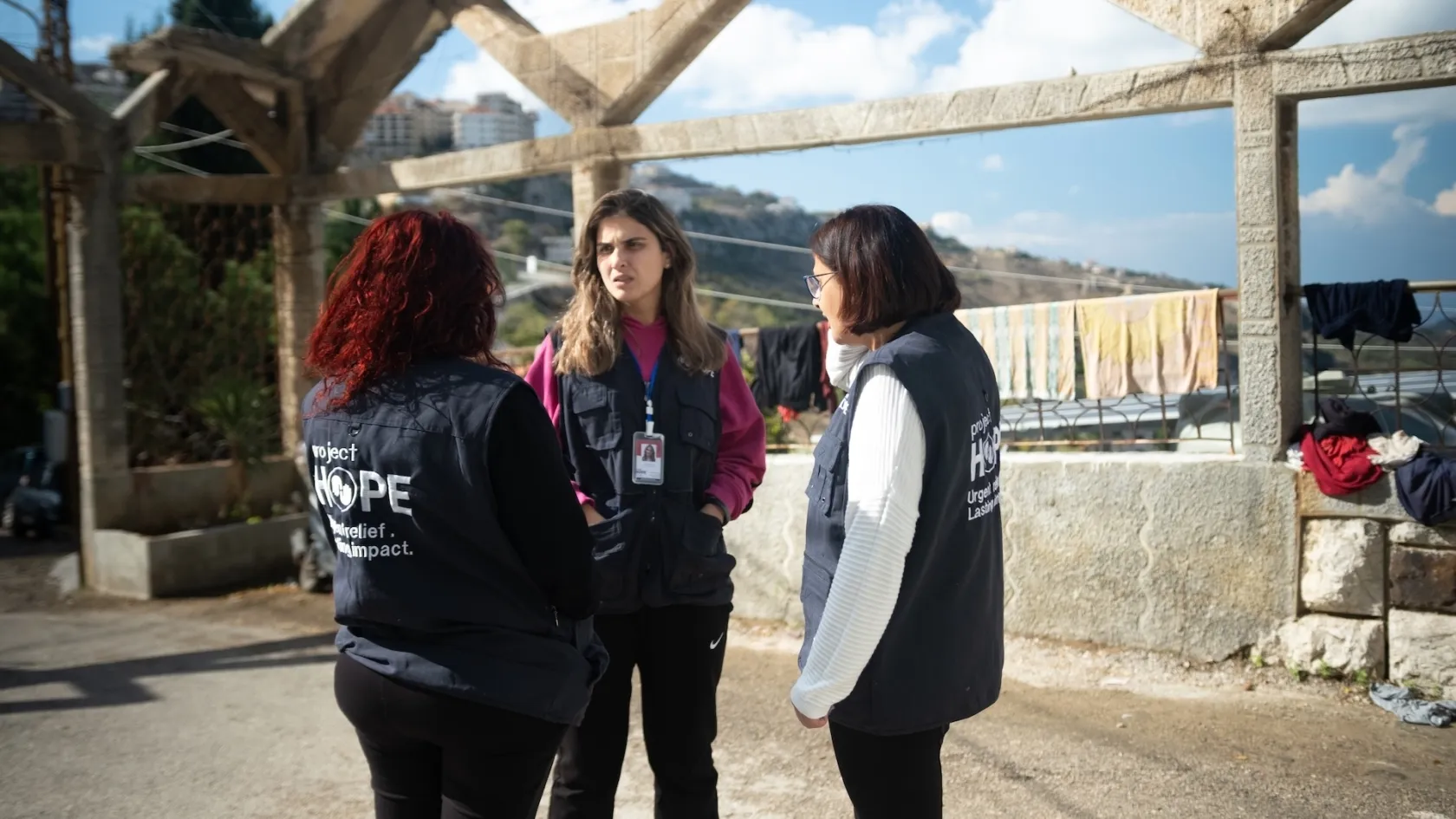In Critical Moments, A Midwife Makes All the Difference

The World Health Organization has recently endorsed midwifery models of care as the best practice for women during pregnancy, birth, and the post-partum period.
WHO’s recent position paper, “Transitioning to Midwifery Models of Care,” explains why: Midwives provide cost-effective, high-quality care that optimizes outcomes for women and newborns with minimal unnecessary interventions. Midwives emphasize continuity of care and community involvement, ensuring personalized and accessible services. Midwives work within broader health care teams and are central to integrated and respectful care. WHO notes the significant role midwives play in reducing maternal and newborn mortality rates and improving overall mental and physical health outcomes.
For so many women, midwives are the bridge to care when every second counts. That’s why Project HOPE supports midwives in places like Sierra Leone, Ukraine, and Gaza: to ensure more women can access high-quality maternal health services when they need them. I saw this first-hand when I recently visited the Gaza midwife team who work in outpatient clinics, conflict-affected communities, and hospital maternity wards caring for the least-served women. These courageous midwives have reached over 13,000 women in the last five months alone, providing essential lifesaving services that would have otherwise not been available.

Midwives are also critical in Indonesia, a country with 280 million people living on 17,000 islands that stretch over 3,000 miles from east to west. Here, 73% of women are cared for by midwives for prenatal care, and 83% for births.
Approximately half of Indonesia’s population resides in rural areas, and half of those in rural areas are from the lowest socioeconomic groups. Half of all infants born in Indonesia receive their first neonatal care from a midwife; about 37% of women in Indonesia give birth in sub-district health facilities where maternities are entirely staffed by midwives, and 18% give birth in private midwife practices.
I had the privilege recently to visit several sub-district hospitals in Indonesia alongside midwife teams who provide a range of services like prenatal care, normal births, post-partum care, and initial stabilization of emergencies and referrals. Traveling to remote areas of the country, we passed miles of forest interspersed with rice fields. We came upon small villages with government health facilities, and in more remote areas, we saw private midwifery practices at their center. The rural sub-district hospitals are well staffed with adequate numbers of midwives who provide services for women coming for care and who also reach out to the more rural communities to provide counseling and basic services.
Project HOPE has provided training and ongoing supportive supervision to give the midwives the confidence and skills to manage common obstetric and newborn emergencies. The midwives shared with me that most births are normal, and that they can identify most problems early and refer, but if an emergency arises, they are ready. They showed me the newborn resuscitation bag Project HOPE donated and confidently demonstrated what they need to do to save a newborn’s life. They showed me their carefully maintained records, where they document their work and concerns, and I had a chance to chat briefly with one of their very satisfied customers.

Although they are confident, they welcome the ongoing support from Project HOPE because new information is always coming, and it’s good for them to have the chance to practice rarely used lifesaving skills. They shared stories of women who came with a hemorrhage, but because of their skill they could stop it and save the women before they referred them for higher care.
In addition to taking care of women’s physical health, midwives are also screening, caring for, and making referrals for mental health concerns. Mental health has a unique impact on pregnant women, leading at times to poor outcomes for both mother and baby. Project HOPE has supported the Indonesian government with its mental health initiative and has trained midwives in the initial management of mental health, including teaching self-care and facilitating support groups.
The midwives I met were proud to be addressing such a serious issue in their community. They shared that in these rural communities with so much poverty, many women feel very stressed, and that giving them an opportunity to share their feelings, be listened to, and have peer support has made a difference in women’s lives. The midwives report that this program has given them the confidence that they needed to start the conversations with the women about their mental health, and now they are seeing more resilience in women who they have taught techniques for selfcare and peer group support.
The hard work of midwives in Indonesia ensures that all women, even the most marginalized, have access to respectful, lifesaving care. That’s the difference midwives can make. By coming to a midwife, women in Indonesia—and around the world—are ensured they will receive the best quality care for their pregnancy and be part of a strong network of health care providers that will be there for them should complications arise.
Rondi Anderson is a Senior Technical Advisor for Reproductive, Maternal, Neonatal and Child Health at Project HOPE.



